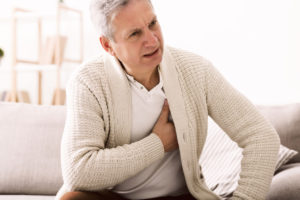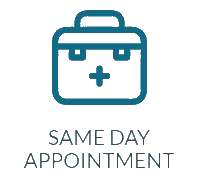When Heartburn Is More than Just Indigestion
 Through the holidays, many people will overindulge in food and alcohol and experience gastrointestinal difficulties as a result. Unfortunately, some people who assume they are just experiencing bad heartburn or nausea are actually having a heart attack. Some people will avoid going to the ER or urgent care because they don’t want to feel silly if the doctor tells them it’s just heartburn. How can you tell the difference between a heart attack and just having heartburn? When should you go to the urgent care to get checked out?
Through the holidays, many people will overindulge in food and alcohol and experience gastrointestinal difficulties as a result. Unfortunately, some people who assume they are just experiencing bad heartburn or nausea are actually having a heart attack. Some people will avoid going to the ER or urgent care because they don’t want to feel silly if the doctor tells them it’s just heartburn. How can you tell the difference between a heart attack and just having heartburn? When should you go to the urgent care to get checked out?
Better Safe than Sorry
If there is even the slightest concern that you might be having symptoms of a heart attack and not just post-splurge gastrointestinal difficulty, don’t waste any time. Go to the ER, the urgent care, or call 911. Time is of the essence when treating a heart attack, and the sooner you can get medical assistance, the more likely you will be to survive and fully recover.
Heart Attack Symptoms
Heartburn and nausea can simply be the result of eating too much food, especially rich, fatty food. However, they are also both symptoms of a heart attack – sometimes the only symptoms someone has. Other heart attack symptoms include heavy pressure in the chest, which is often described as having someone press down or stand on you; severe chest pain; pain that radiates down your jaw, through your neck, or down your left arm; and breaking out in a sudden cold sweat. If you have any of these symptoms, call 911.
How Will My Doctor Determine If I’m Having a Heart Attack?
Your physician will be able to perform a variety of tests to determine if you are having or have had a heart attack. The most common test is the echocardiogram, which allows the doctor to use ultrasound to see how the heart is functioning. Other tests include:
- Ambulatory electrocardiogram (ECG or EKG)
- Stress testing
- Cardiac catheterization
- Holter monitoring
- Ankle-brachial index test
Treatment for cardiovascular disease will depend upon your health, severity of the heart damage, and other considerations. Treatments include:
- Lifestyle changes, including diet and exercise
- Medications
- Medical procedures
- Surgery
Park Avenue Medical Professionals’ cardiologists offer services in Manhattan’s Upper East Side. Our board-certified NYC cardiologist has extensive experience in diagnosing and treating cardiovascular disease and performing cardiac testing. Learn more about our cardiology services by contacting our office at 212.427.2000. You can also make an appointment by filling out this form.



